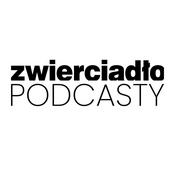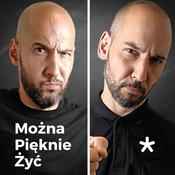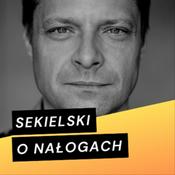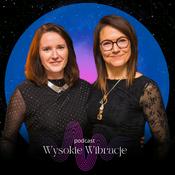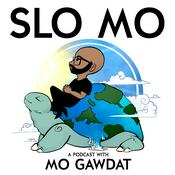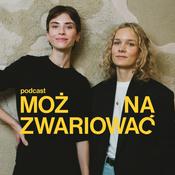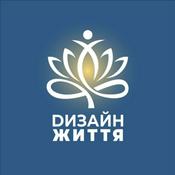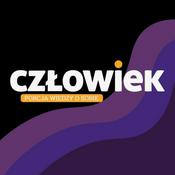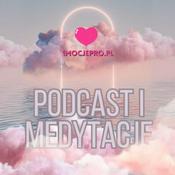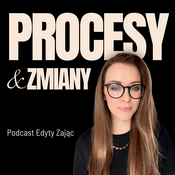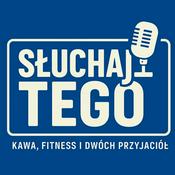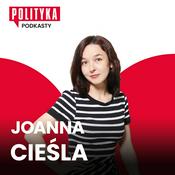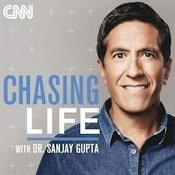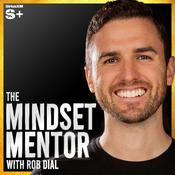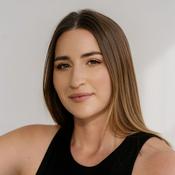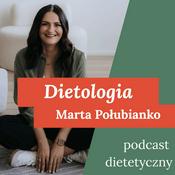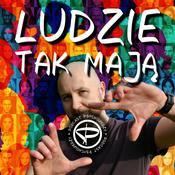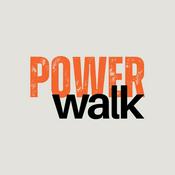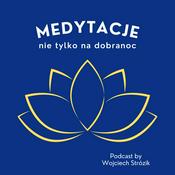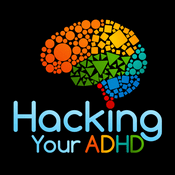Digital Health 101, by Dr. Stefano Bini and Digital Health Today
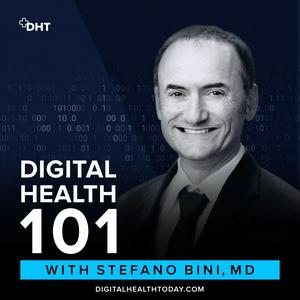
14 odcinków

What is Enterprise Blockchain? How is it Used?
30.03.2022 | 36 min.
This episode is all about what enterprise blockchain is and how it can be used! We are honored to feature Radhika Inyegar, co-author of the book “Enterprise Blockchain Has Arrived”. She shares with us how the blockchain came about conceptually, the differences between proof of work versus proof of stake, the different roles for permission and permission-less systems, smart contracts and the impact it will have on healthcare. Blockchain is essentially a database that has multiple owners, so everyone sees and has access to the same information. Right now, blockchain is used in the non-PHI side of healthcare. Blockchain is all about truth and transparency in the transactions involved, and their application to healthcare is going to change the game. About Rhadika Inyegar Radhika Iyengar is a TEDx and keynote speaker, author, Silicon Valley Woman of Influence, and a serial entrepreneur. She is Founding Partner at StarChain Ventures, a Silicon Valley-based venture studio focused on the convergence of advanced technologies including Blockchain, AI and IoT. She is also Managing Partner of DoubleNova Group, a global advanced tech advisory company based in Silicon Valley. Radhika is a co-author of the critically acclaimed book Enterprise Blockchain Has Arrived. As an enterprise blockchain expert, she has advised companies globally in the healthcare, fintech and supply chain sectors. She is a member of the Government Blockchain Association as well as the California Gov Ops Blockchain Working Group, a task force advising California state legislature, where she has advised on a wide range of areas such as healthcare, life sciences and pharma supply chains, digital identity, privacy, sustainability, and food and agriculture supply chains. Radhika is an Advisory Board Member and Global Ambassador of Blockchain in Healthcare Today (BHTY), the world’s first peer-reviewed journal on blockchain in healthcare. Key Take-aways The Internet changed the world, and blockchain is on its way to do the same. Blockchain is a distributed ledger technology which allows multiple owners to have ownership of the data that's within it. Once a change is made in a blockchain, it is immutable. In blockchain all of the blocks of information are tied to each other. Blockchain does not store data, it stores the hash of the record. Guest Links and Resources: Connect and Follow Radhika on LinkedIn: https://www.linkedin.com/in/radhikaiyengar13/ Follow Radhika on Twitter: https://twitter.com/RIyengar13 Grab your copy of the book “Enterprise Blockchain Has Arrived” by Radhika Inyegar and Jorden Woods here: https://www.amazon.com/Enterprise-Blockchain-Has-Arrived-Deployments-ebook/dp/B07Z3LJCHW

What is Synthetic Data? How Can it be Applied in Healthcare?
15.02.2022 | 28 min.
What are the real-world applications for synthetic data? What power can it have? And... what is it exactly? All of these questions and more are solved in this episode, featuring Dr. Michael Lesh, the CEO and founder of Syntegra. During his career he has always found ways to solve needs through technology, and that is what he and his team’s been doing with synthetic data. Starting by its definition, Michael walks us through how synthetic data could solve a lot of issues regarding privacy around medical records. In the end, synthetic data is a set of information that looks like the original but doesn’t have any patient information that could violate any restriction in place. Synthetic datasets could be solving a lot of problems in the healthcare setting that rise up when partnerships are trying to be made. Even if you’re not a math geek, we know you will find this episode appealing; tune in and enjoy! About Michael Lesh Michael D. Lesh, SM MD FACC, is the founder and CEO of Syntegra and an Adjunct Professor of Medicine at the University of California, San Francisco. Until recently, he also served as Executive Director of Health Technology Innovation in the Office of Vice Chancellor there. Dr. Lesh combines a background in biomedical engineering and computer science from MIT with a career as a physician-scientist in cardiac electrophysiology. He received training at UCSF and University of Pennsylvania. Dr. Lesh is an accomplished inventor and entrepreneur, having founded and served as CEO of a number of successful medical device companies, including Atrionix, Mitralife, Appriva Medical, Evera Medical and Middle Peak Medical, many of which were later acquired by leading life sciences companies. He also served as a director at HeartScape, Stentys, Abate, Cordance and KidneyCor. Dr. Lesh has authored over 200 scientific papers, book chapters and books, and he is an inventor on over 250 patents, including the foundational method of atrial fibrillation ablation and left atrial appendage occlusion to prevent stroke. Key Take-aways Medical data has a lot of mandatory restrictions and privacy concerns. Synthetic data intends to solve a problem regarding privacy inquiries with sharing. De-identified data is very different from synthetic data. Once you create a synthetic data set you can augment it easily. A generative model will fill in missing data in the sets. Guest Links and Resources: Connect and Follow Michael on LinkedIn: https://www.linkedin.com/in/michaeldlesh/ Learn more about Syntegra.io here: https://www.syntegra.io/

What are Chatbots? And how can Chatbots be Used in Healthcare?
08.02.2022 | 33 min.
Today, we feature Manav Sevak, co-founder and CEO of Memora Health, a company that uses chatbots to help with the very complex task of sharing information between healthcare providers and their patients, or even healthcare systems. Healthcare is one of the most complex industries out there, with tons of information being transferred by the second. Chatbots are here to help this information be transferred easier between patients, providers and systems. He also walks us through how they use a decision tree. Chatbots are changing the world and their application into healthcare is growing by the day. Tune in to this amazing episode with Mr. Sevak, you will enjoy it. About Manav Sevak Co-Founder & CEO of Memora Health, a health company using natural language processing technology to build the next-generation of outpatient care and modernize patient communication. He is interested in everything from health tech to computational biology to health policy. Key Take-aways The chatbot application on healthcare can improve patient access to information and resources. Chatbots are automated systems that allow for some form of interaction asynchronously to take place. Chatbots have one answer for one question only. Chatbots can use incredibly complex decision trees according to the way they are built. Any conversational system at the end of the day is really only as good as the data that you give it. Guest Links and Resources: Connect and Follow Manav on LinkedIn: https://www.linkedin.com/in/manavsevak/ Follow Manav on Twitter: https://twitter.com/mnvsevak Know more about Memora Health on their website: https://www.memorahealth.com/

What is computer vision? How do computers see?
08.12.2021 | 31 min.
What can computers see, and what can they do with that information? These are just some of the few questions we answer as we learn more about our outstanding guest in this episode, Meghan Conroy. Meghan shares how CAPTUREPROOF was born, what camera vision is, how it works, and its other applications. She discusses how her company adds value to healthcare through images, providing excellent examples of companies she has worked with. Meghan also shares her thoughts and insights on using camera vision in diagnostics and more! Computer vision is a promising application and can be used to create a visual record of an improvement, so make sure to tune in and enjoy. About Meghan Conroy Meghan is the CEO & Founder at Captureproof Inc. Before CAPTUREPROOF, she also founded bH, a clinical trial photo management company. Her background in Physiology led her to work in big Pharma for many years. Meghan is also a photographer, and her work was exhibited in Chicago, San Francisco, Paris, and London. Key Takeaways Through evolution, our brain was trained to read visual images in 13 seconds. It takes our eye 150 milliseconds to blink. Color can be a very compelling aspect of a diagnosis in medicine. Visual data can solve so many problems in healthcare. 30% of our ER visits for patients over 65 are due to fall. There are opportunities for diagnosis across disease states or specialties. Visual data crosses all barriers. Resources Website: https://captureproof.com/ LinkedIn: https://www.linkedin.com/in/meghan-conroy-281a97/ Twitter: @meghanconroy

How can you achieve Interoperability and protect privacy?
01.12.2021 | 25 min.
One of the significant problems in healthcare is the lack of interoperability. In this episode, we will find out what it is and how to solve it. Today, we are privileged to feature Martin Aboitiz, CEO and Founder of Healthjump. This platform provides health data interoperability services. Martin discusses how his company helps solve interoperability in healthcare by extracting the data and putting it in a single model that they can control and make it accessible to other software, a novel solution. We cover the types of problems this innovative solution can be used for, and how it works while still maintaining HIPAA requirements. Martin also talks about the many other challenges in interoperability. If you are experiencing interoperability concerns or would like to find out how Healthjump solves it, this podcast can answer that for you! About Martin Aboitiz Martin Aboitiz is an engineer, entrepreneur, and angel investor with extensive information technology and consumer products experience. Currently, he is the CEO and Founder of Healthjump, a health data interoperability platform. Prior to Healthjump, he was the Founder and President of Intermedia Comunicaciones SA, one of the first ISPs in Argentina; becoming a corporate hosting and IT consulting company after the sale of the ISP division to SkyOnline in 2004. Martin transitioned from engineering to venture management at Bun SA, an industrial snack food production and marketing company in Argentina acquired by Pepsi Foods International in 1993. As an angel investor, he has participated in multiple ventures in and out of the United States (most notable EXOS Inc sold to Microsoft and Telecom Americas LTD sold to Telmex.) He has served on various company boards of directors and industry trade group councils over the years and is a Regional Chair for the MIT Educational Council. He holds MS and BS degrees in Civil Engineering from Colorado State University and Massachusetts Institute of Technology. Key Takeaways Healthjump is good at keeping the data living forever. You need to have an objective. Don't limit yourself by what you think is possible or not. Understand your problem well: what do you want to achieve? Resources Website: https://www.healthjump.com/ LinkedIn: https://www.linkedin.com/in/martin-aboitiz-90a1447/ Twitter: @MartinAboitiz
Więcej Zdrowie i Fitness podcastów
Trendy w podcaście Zdrowie i Fitness
O Digital Health 101, by Dr. Stefano Bini and Digital Health Today
Słuchaj Digital Health 101, by Dr. Stefano Bini and Digital Health Today, On Purpose with Jay Shetty i wielu innych podcastów z całego świata dzięki aplikacji radio.pl

Uzyskaj bezpłatną aplikację radio.pl
- Stacje i podcasty do zakładek
- Strumieniuj przez Wi-Fi lub Bluetooth
- Obsługuje Carplay & Android Auto
- Jeszcze więcej funkcjonalności
Uzyskaj bezpłatną aplikację radio.pl
- Stacje i podcasty do zakładek
- Strumieniuj przez Wi-Fi lub Bluetooth
- Obsługuje Carplay & Android Auto
- Jeszcze więcej funkcjonalności


Digital Health 101, by Dr. Stefano Bini and Digital Health Today
pobierz aplikację,
zacznij słuchać.



